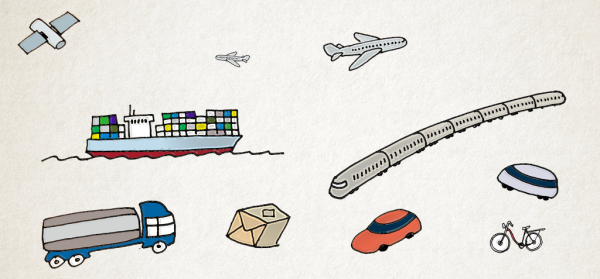The mobility ecosystem, which covers a broad range of activities, has witnessed a number of dynamic changes since the 19th-century invention of the locomotive engine powered by steam. According to a report by McKinsey & Company (2017), recent activities and trends in the sector have shown distinctive clusters around four major pathways.

These pathways have been projected to account for “massive shifts” due to disruptions in traditional business models in the transportation sector as well as paving ways for new entrants previously classified as outsiders to the sector.
These four paths with ample cross-cutting technologies are;
(i) Autonomous driving;
(ii) Connectivity;
(iii) Electrification; and
(iv) smart mobility.
Autonomous driving, still at a meagre 1% penetration rate, paves the way for the control of the automobiles without a physical human behind the wheels.
Connectivity leveraging on the era of Internet-of-Things (IoT) promises faster and more efficient service to users.
With increasing debate in favour of Climate change mitigation, the shift in the energy model used in automobiles to electricity promises a substantial reduction in greenhouse gas emissions.
Smart mobility offers considerable flexibility to car ownership and usage through internet enhanced carpooling services.
These increadible advances in ICT as found their use in the trasnportation sector. Disruptions and innovation using these technologies have seen to the rise of new mult-billion dollar companies accross the globe, but how has these fared in Nigeria?
The next post will show ICT-Transportation dynamics in Nigeria. :)
Internet of things is such a big revolution. The ICT is developing at a rather speed and new things to come as well.
I look forward to the new future ICT unveils. My next focus is to explore the implication of this uncharted course for my country - Nigeria. What the impending disruption holds for emerging economies in terms of jobs and shared prosperity.
Thank you @mmasim for reading.